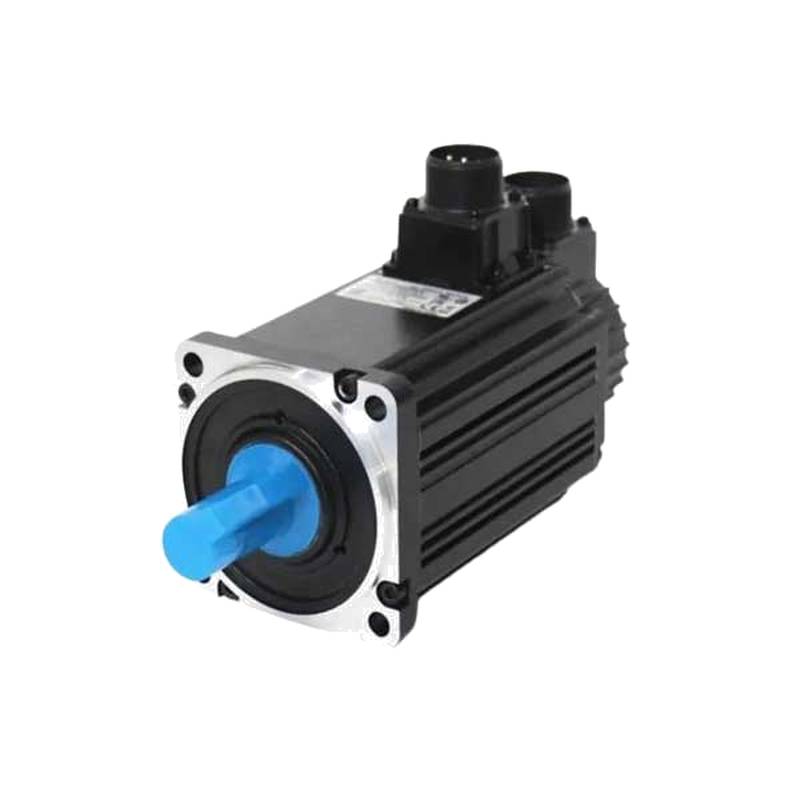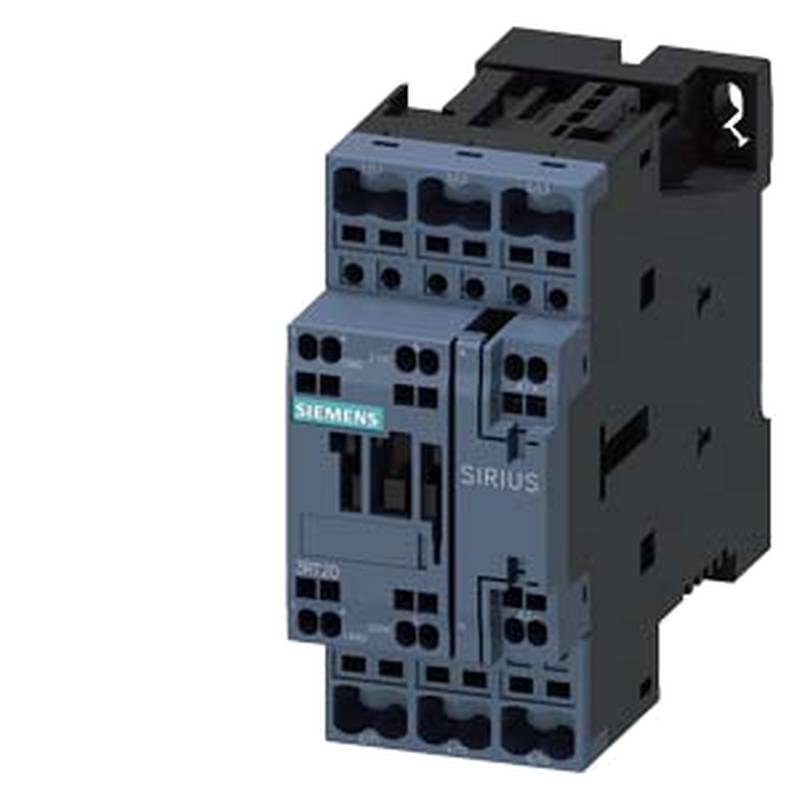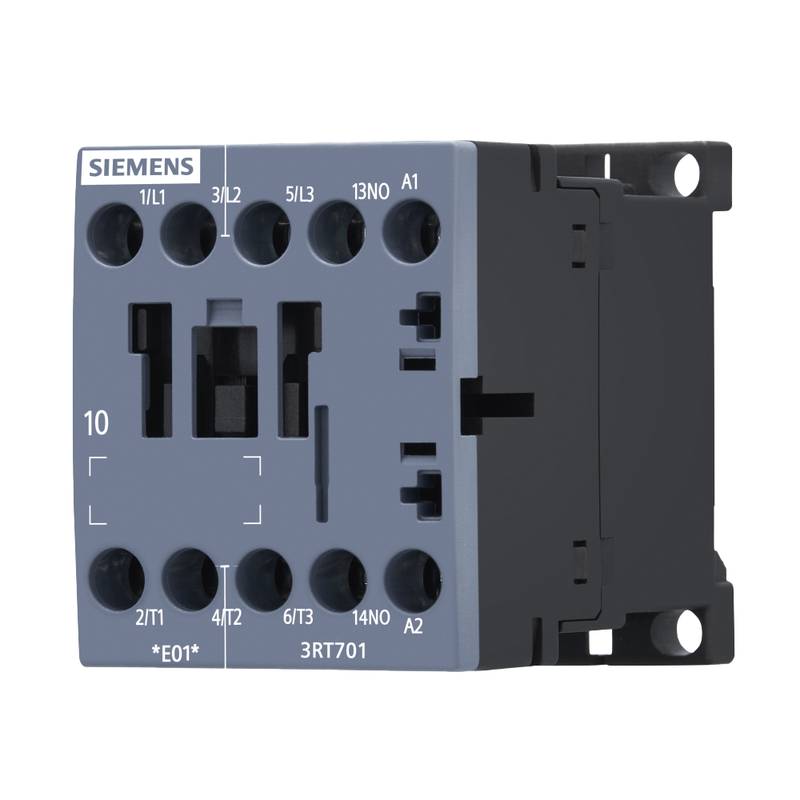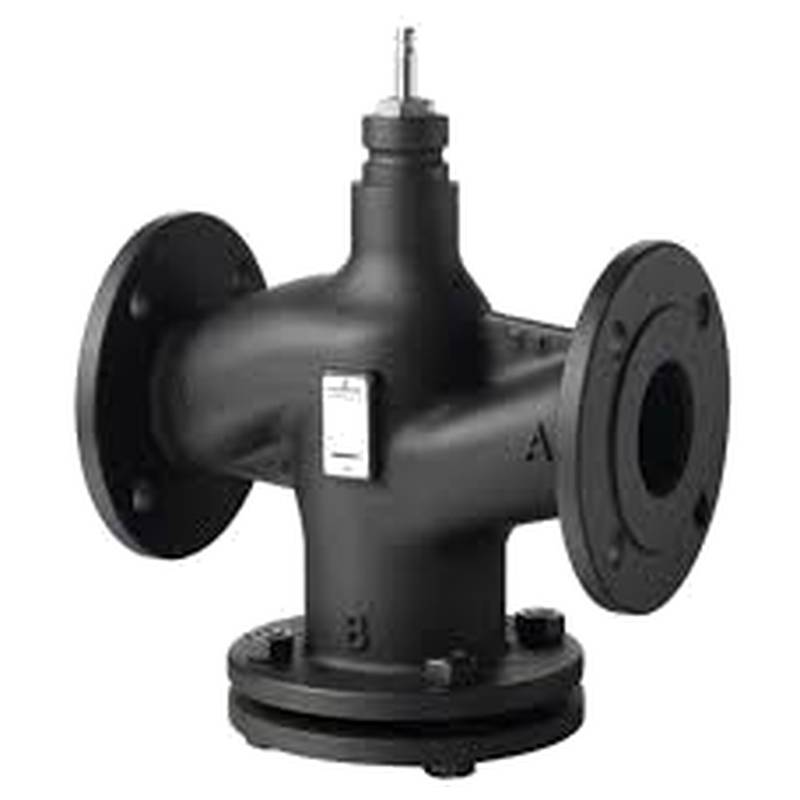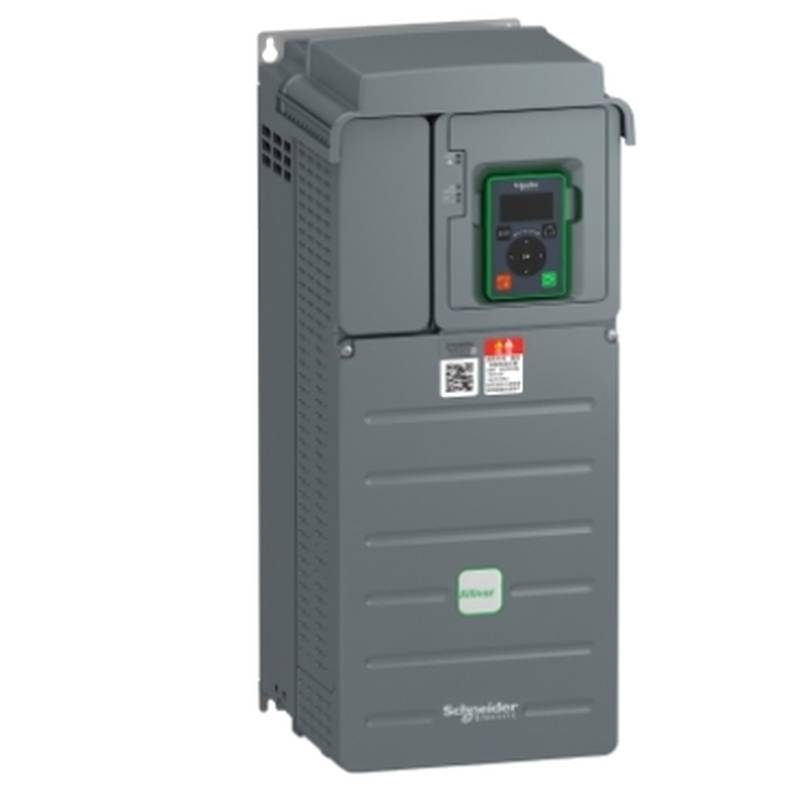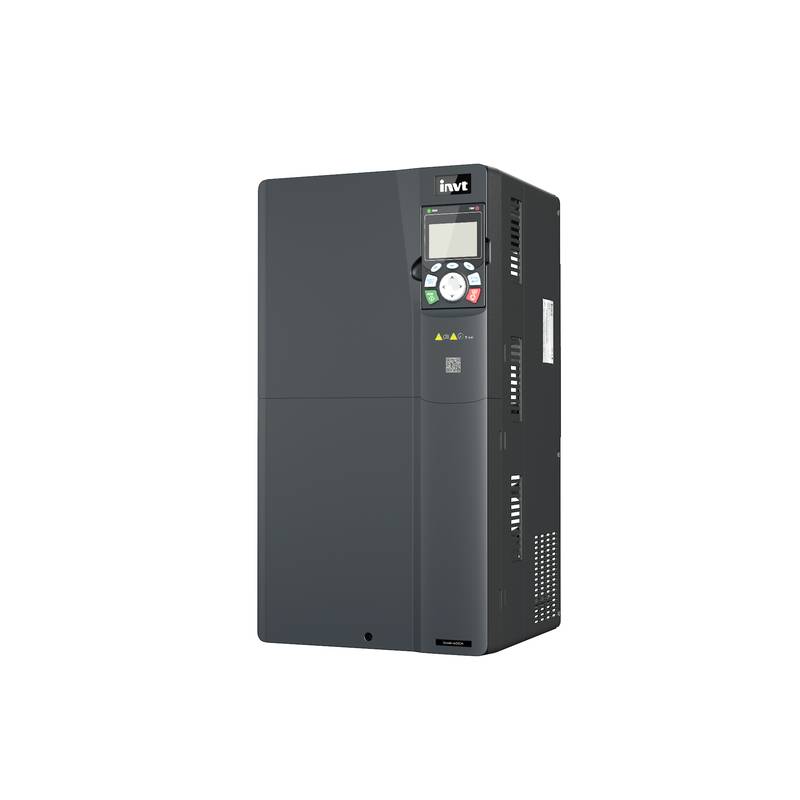
The Delta ECM-B3M-C20807SS1 Brake Resolver Servo Motor represents a significant advancement in motion control technology, offering enhanced performance, precision, and reliability for demanding industrial applications. This motor, part of Delta's new generation ECM-B3 series, is engineered to deliver superior results in automation, robotics, and machine tool environments. Its key advantages include a compact design, improved torque capabilities, and a high-resolution encoder for exceptional positional accuracy.
Product Specifications
| Feature | Specification |
| :---------------------- | :---------------------------------------------- |
| Model | ECM-B3M-C20807SS1 |
| Series | ECM-B3M Medium Inertia |
| Rated Output Power | 750 W |
| Voltage | 200-220 VAC |
| Rated Speed | 3000 RPM |
| Maximum Speed | 6000 RPM |
| Rated Torque | 2.39 Nm (approx. 2.4 Nm) |
| Peak Torque | Up to 350% of rated torque |
| Encoder Resolution | 24-bit Incremental Optical Encoder |
| Brake | Integrated Electromagnetic Brake |
| Frame Size | 80 x 80 mm |
| Shaft Diameter | 19mm h6 |
| Rotor Inertia | 1.13 x 10⁻⁴ kg·m² |
| IP Rating | IP65 (with waterproof connections and seals) |
| Operating Temperature | -20°C to 60°C |
| Insulation Class | Class A (UL), Class B (CE) |
Core Features & Market Positioning
The Delta ECM-B3M-C20807SS1 distinguishes itself through its "Medium Inertia" design, striking a balance between rapid acceleration and precise control suitable for a wide array of applications. Its integration with the Delta ASDA-B3 servo drive series signifies a commitment to creating a cohesive and high-performance motion control ecosystem. The 24-bit incremental optical encoder offers a substantial leap in resolution compared to previous generations, providing 16,777,216 pulses per revolution. This enhanced feedback system ensures exceptionally smooth operation and highly accurate positioning, crucial for tasks requiring sub-millimeter precision. Furthermore, the motor's compact dimensions, with a length reduced by approximately 31% compared to older ECMA models of the same wattage and flange size, facilitate easier integration into space-constrained machinery. The increased short-term torque boost to 350% enables faster acceleration and deceleration, leading to reduced cycle times and improved overall productivity.
Key Application Scenarios
The robust performance and precision of the Delta ECM-B3M-C20807SS1 servo motor make it an ideal choice for various industries and applications. It is highly effective in:
Industrial Automation: Robotics, automated assembly lines, and pick-and-place systems benefit from the motor's precise movement and rapid response. Machine Tools: CNC machining centers, grinding machines, and other precision manufacturing equipment leverage the motor's high torque and positional accuracy for complex cutting and shaping operations. Material Handling: Automated guided vehicles (AGVs), conveyor systems, and automated storage and retrieval systems (AS/RS) can achieve faster throughput and more reliable operation. Packaging Machinery: High-speed packaging lines requiring accurate positioning and consistent motion will find this motor well-suited. Printing and Converting: Applications in the printing industry and flexible packaging production benefit from the smooth and controlled motion.
Practical System Integration Guidance
Integrating the Delta ECM-B3M-C20807SS1 servo motor with its compatible ASDA-B3 series servo drive is straightforward, designed for efficiency and minimal setup time. The motor connects to drives such as the ASD-B3-0721, ASD-B3A-0721, or ASD-B3B-0721. It's essential to use the correct power and encoder cables, which are typically purchased separately. The wiring diagrams and parameter settings for the ASDA-B3 drive should be consulted for optimal performance, including initial tuning and gain adjustments. Delta's ASDA-B3 drives feature automatic tuning functions and gain adjustment capabilities, simplifying the setup process and ensuring the motor operates at peak efficiency with varying loads and machine inertias. The use of EtherCAT high-speed communication is also supported by the ASDA-B3 series, significantly reducing wiring complexity and inspection time for multi-axis systems.
Operation and Risk Mitigation
Safe operation of the Delta ECM-B3M-C20807SS1 servo motor involves understanding its integrated brake functionality. The built-in electromagnetic brake is primarily intended for holding the load in a stopped state and should not be used for deceleration or as a dynamic brake. Ensuring proper installation within a shielded control box is recommended for open-type drives like the ASDA-B3 series to mitigate electromagnetic interference. While specific fault codes are detailed in the ASDA-B3 servo drive user manual, common troubleshooting steps involve verifying power supply, encoder connections, and motor phase wiring. Overheating can be mitigated by ensuring adequate heatsink dimensions, as specified by Delta for the motor frame size. For motors with brakes, it's crucial to ensure the brake power is correctly supplied and controlled by the drive to prevent unintended motion or failure to hold.
Scalability & Long-Term Value
The ECM-B3M-C20807SS1 is designed for seamless integration within Delta's broader automation solutions, offering significant long-term value. Its compatibility with the ASDA-B3 series, and the backward compatibility of ASDA-B3 drives with ASDA-A2 and ASDA-A3 series, provides upgrade paths for existing Delta installations. The motor's advanced encoder technology and high-performance characteristics contribute to improved machine efficiency and reduced maintenance requirements over its lifespan. Furthermore, the growing emphasis on Industrial IoT (IIoT) and Industry 4.0 solutions means that systems incorporating Delta's latest servo technology are well-positioned for future integration with smart manufacturing platforms, enabling data-driven optimization and predictive maintenance strategies.
Frequently Asked Questions (FAQs)
Q1: What is the primary advantage of the 24-bit encoder in the ECM-B3M-C20807SS1?
The 24-bit encoder provides significantly higher resolution, offering 16,777,216 pulses per revolution. This level of detail allows for incredibly precise position control and smoother motor operation. It translates to finer movements and greater accuracy in motion-critical applications.
This enhanced feedback dramatically improves closed-loop control performance. Systems can achieve tighter tolerances and repeat positional commands with exceptional consistency. It's a key differentiator for high-precision tasks.
The high resolution also aids in reducing vibration and noise during operation. This leads to a more stable and reliable system performance. It's ideal for applications demanding quiet and smooth motion.
Q2: How does the integrated brake function on the ECM-B3M-C20807SS1 operate?
The integrated brake is an electromagnetic type, designed for holding loads when the motor is stopped. It engages when power is removed from the brake coil. This feature ensures the load remains stationary, preventing accidental movement or drift.
It's crucial to understand that this brake is not for dynamic braking or deceleration. Using it for stopping motion can lead to premature wear or failure. It serves as a safety mechanism for maintaining position.
The ASDA-B3 servo drive controls the power supplied to the brake. Proper configuration of the drive's parameters is essential to ensure correct brake engagement and disengagement. Always consult the drive manual for specific settings.
Q3: What are the main differences between the ECM-B3M series and older Delta servo motor series like ECMA?
The ECM-B3M series offers a substantial performance increase. This includes higher maximum speeds and an improved short-term torque boost. It also features a more compact design for a given power rating.
The encoder resolution has seen a major upgrade from 17-bit to 24-bit. This provides much finer positional feedback. The motor's length is notably reduced compared to previous generations.
Despite these improvements, flange sizes and shaft diameters have often remained consistent. This facilitates an easier upgrade path from older ECMA motors to the ECM-B3M series.
Q4: What are the typical applications for a 750W servo motor with a brake?
A 750W servo motor with a brake is suitable for applications requiring both motion control and secure holding. This includes robotics, where the brake can hold an arm in position. It's also used in CNC machines for tool holding.
Material handling systems benefit from the brake to secure loads on conveyors or lifts. Packaging machinery often uses it to hold product carriers precisely. The 750W rating indicates moderate to high power needs.
The brake adds a safety layer for vertical axes or any application where gravity could cause uncontrolled descent. This enhances operational safety significantly.
Q5: Is the Delta ECM-B3M-C20807SS1 compatible with drives other than the ASDA-B3 series?
The ECM-B3M series is specifically designed and optimized for the ASDA-B3 servo drive series. Delta recommends using these matched components for guaranteed performance and reliability. While some drivers might offer generic compatibility, it is not advised.
Using the ECM-B3M with an incompatible drive can lead to performance issues, damage, or voided warranties. The advanced encoder feedback requires specific drive communication protocols. Always prioritize the manufacturer's recommendations.
For optimal results and to leverage the motor's full capabilities, pairing it with the ASDA-B3 drive is the best practice. This ensures full functionality of features like the 24-bit encoder and advanced control algorithms.
Q6: What kind of maintenance is required for the Delta ECM-B3M-C20807SS1?
General maintenance involves keeping the motor clean and free from dust or debris. Ensure ventilation paths are clear to prevent overheating. Periodically inspect wiring connections for security and wear.
The integrated brake requires minimal maintenance, but its effectiveness should be checked during system tests. Monitor for any unusual noises or performance degradations. Professional servicing might be needed for issues.
For specific maintenance schedules or advanced diagnostics, consult the Delta ASDA-B3 servo drive manual. It provides guidance on system checks and parameter monitoring. Regular checks ensure longevity and peak performance.
Q7: Can the ECM-B3M-C20807SS1 be used in environments with dust or moisture?
The ECM-B3M-C20807SS1 has an IP65 rating when waterproof connections and seals are used. This rating indicates protection against dust ingress and low-pressure water jets. It is suitable for moderately harsh industrial environments.
However, it's not designed for complete submersion or high-pressure washdowns. Always ensure that all cable glands and connections are properly sealed. Environment conditions should be monitored.
For extremely harsh environments, additional protective measures like enclosures may be necessary. Always refer to the product specifications and environmental guidelines for optimal usage.
Q8: What is the rated torque of the ECM-B3M-C20807SS1 servo motor?
The rated torque of the Delta ECM-B3M-C20807SS1 servo motor is approximately 2.39 Nm to 2.4 Nm. This is the continuous torque the motor can deliver at its rated speed and operating temperature without overheating. It's a key indicator of the motor's steady-state performance.
This torque rating is crucial for calculating system requirements. It helps in determining if the motor can handle the continuous load of the application. It's important to consider this value during motion profile design.
The motor also boasts a significantly higher short-term torque capability, up to 350% of its rated torque. This allows for rapid acceleration and deceleration, essential for reducing cycle times in automated processes.
Q9: How does the medium inertia design impact motor performance?
Medium inertia motors, like the ECM-B3M-C20807SS1, offer a good balance. They provide faster acceleration than high-inertia motors but more torque stability than low-inertia types. This makes them versatile for many applications.
This design is optimal for machines that require a blend of speed and precision. It allows for quick movements without sacrificing control accuracy. Applications like pick-and-place and general automation benefit greatly.
The medium inertia rating means the motor can respond quickly to commands. It's less prone to overshooting its target position compared to lower inertia motors under heavy loads.
Q10: What are the implications of the ECM-B3M-C20807SS1 being part of Delta's newest generation of servo motors?
Being part of the newest generation means it incorporates the latest technological advancements from Delta. This includes enhanced performance metrics like speed, torque, and encoder resolution. It represents Delta's focus on innovation.
Compatibility with the ASDA-B3 drive series ensures a cohesive system. This pairing offers advanced control algorithms and user-friendly tuning features. It provides a competitive edge in automation solutions.
These newer generation motors often feature improved designs for compactness and efficiency. They are built to meet the evolving demands of modern automation, including potential for integration with IIoT platforms.














